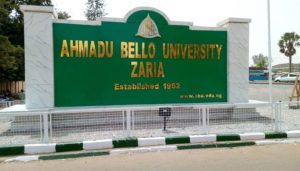It is not possible to have read everything written on the death of Prof Abdullahi Mahdi but it may not be untrue to say more attention went to his flower flavouring of ABU, Zaria campus during his tenure as Vice-Chancellor. That’s fine because in the context of climate change, planting flowers is a contribution.
But Prof Mahdi was part and parcel of a turning point scholarship that should be given more than a passing attention in reporting his death. Unlike Latin America which added value to Marxism through a creative application of it from their own experience of history to propound Dependency Theory or Asia which added a practical dimension to development theory by producing the ‘Asian Tigers’ or arriving at modernity mostly by rejecting modernisation orthodoxy, Africa has yet to make accomplish such a distinctive scholarly intervention. That leaves the continent with what would now be called its exertions in standpoint epistemology as the plausible achievements.
 In that case, the Zaria and Ibadan schools of History – the two most dominant in Nigeria – have become the biggest scholarly investments around. The confidence and boldness that underpin these schools are adequate sources of pride in a world which has been made to accept that Africans can only consume theories but cannot produce any.
In that case, the Zaria and Ibadan schools of History – the two most dominant in Nigeria – have become the biggest scholarly investments around. The confidence and boldness that underpin these schools are adequate sources of pride in a world which has been made to accept that Africans can only consume theories but cannot produce any.
As such, Nigeria should not fall to bring to the fore the achievement in the two dominant schools of History it produced whenever a key participant of any of the schools in question dies or make news in any other ways.
Nigeria is in a dire need of comprehensive restructuring of the deliverables in the university system. No such restructuring would be meaningful if they do not return to re-engagement with the contentions put on the table by the Ibadan and Zaria schools of History, for instance, working into it with the benefits of new ontological and epistemological arguments that have been advanced. It is a matter of regret that the review, if it takes place at all, would now be done without key participants in its flow such as Prof Mahdi, not to talk of the Bala Usmans, the George Kwanashies and other big names involved.
Considering this dimension, why might Prof Mahdi’s death not be a trigger for a low budget seminar which makes revisiting the ABU Zaria School of History it’s subject matter. This would prepare the ground for a full-scale engagement with the subject matter on a global scale later. Faculty members can take up the fund raising for this and make a success of it beyond imagination. With billionaires out there struggling for power, why should a budget of N20m be a problem for an ABU, Zaria faculty in Nigeria? Knowledge production must be funded, somehow and there are no ethical issues in raising funds for this kind of potentially rewarding scholarly exploration.
Even without billionaire presidential candidates, products of the old FASS and of the Zaria School of History are all over the Nigerian space, individually and collectively located to assist.
It is the same thing that the Ibadan School of History must do to claim its pioneering status in postcolonial theory and standpoint epistemology. No matter how bad things are, Ibadan School of History should NOT fail to critically celebrate its contribution to methodology, specifically Historiography with its stance on orality. It is too original to be allowed to be run over by richer and louder voices in academia.
May Prof Abdullahi Mahdi’s death force all these back into the agenda. He, indeed, added value to his training in history by becoming Vice-Chancellor of two different universities. That speaks to something! His family and friends will miss him but Nigeria will miss him more, the Nigeria that is not reproducing academics of that generation anymore.




























